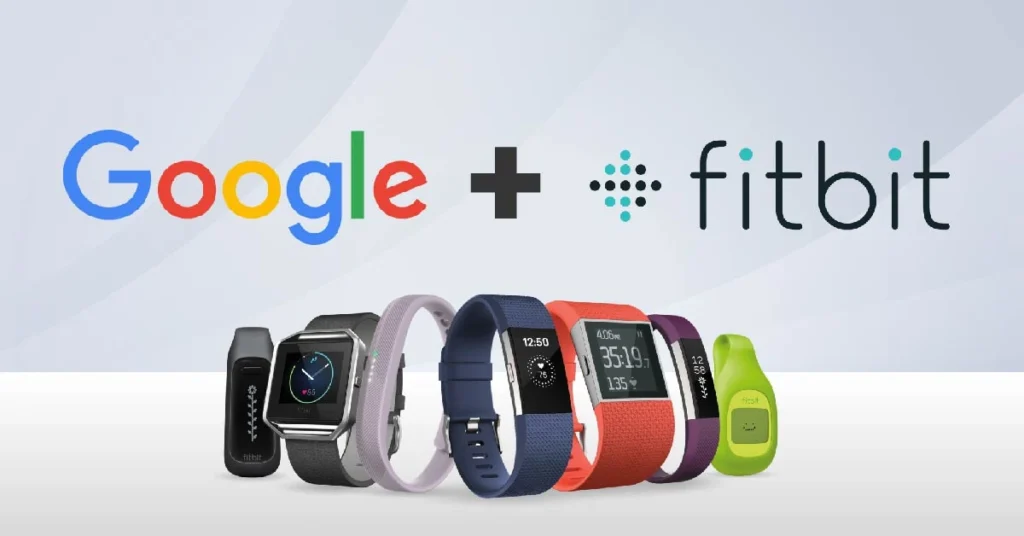An important change will happen in the wearable tech world. Google will fully take control of Fitbit’s official website. This means that all Fitbit devices, including fitness trackers and smartwatches, will be sold through the Google Store. This change follows Google bought Fitbit in 2021. Google aims to make fitness tracking easier by integrating Fitbit products into its ecosystem. For customers, this means buying Fitbit devices directly from Google. It could lead to better experiences, smoother integration with Google services, and new features. In this blog, we’ll explain what will change, how it will affect customers, and what the future holds for Fitbit within Google’s system.
Why did Google Buy Fitbit?

Unified Shopping Experience
When Google bought Fitbit, it changed how Fitbit products are sold. Starting in October 2024, Fitbit products won’t be on the official Fitbit website. Instead, all Fitbit devices will be on the Google Store. You’ll find them alongside other Google products, like Pixel phones, Google Nest, and smart home devices. Now, customers can shop for everything in one place. Whether you need a fitness tracker or a smartphone, you can buy it all on Google’s website.
Better Integration with Google Services
Google bought Fitbit to make Fitbit devices work better with Google services. After the change, Fitbit will sync more smoothly with Google Fit, Google AI Assistant, and others. For example, you’ll be able to control your Fitbit using Google AI Assistant. Google Fit will also give you health suggestions based on your Fitbit data. This will make it easier to track your health and stay connected with everything in the Google ecosystem.
Simplified Account Management
When Google bought Fitbit, they also made managing accounts easier. Fitbit users will link their accounts to Google accounts. This will make it easier to sync your health data across your devices. Your information will now be in one Google account. This makes it simpler to manage your preferences and track your data.
What are the Benefits to Customers?
Fast Access to Products
Google’s control over Fitbit will make it easier for customers to buy Fitbit devices. If you already use other Google products, you can shop at the Google Store. You can now buy Fitbit devices alongside your other tech needs. This change makes shopping easier for people who already shop at Google’s website.
Potential Price Changes
One of the big questions after Google bought Fitbit is whether prices will change. Fitbit has been affordable compared to competitors like the Apple Watch. But now that Google owns Fitbit, prices might shift. Google could raise or lower prices depending on its new strategy. Users should be ready for some possible changes in price.
Upgraded Product Features
With Google’s technology, Fitbit devices could see better features. Fitbit’s sleep tracking could become more advanced, giving users deeper insights. Google’s AI could also offer better health tracking. Fitbit could get new tools to help you personalize your fitness plans.
What Does this Mean for Fitbit Users?
Account Migration
After Google bought Fitbit, existing Fitbit users will need to link their accounts to Google accounts. This will help sync health data with Google Fit. Most users will find the process simple, but some may worry about transferring their data. Google needs to make this transition easy and clear for everyone.
Better Personalization
Google’s AI will make Fitbit more personal. It will look at your data and offer suggestions that fit your needs. You might get custom fitness plans or advice that help you meet your fitness goals.
Customer Support Transition
Fitbit’s customer support will now be managed by Google. Some users might find this change difficult, especially if they are used to Fitbit’s support. But Google is known for good customer service, so this could improve support over time.
Future Potential of Fitbit Devices within the Google Ecosystem

Increased AI Integration
Google bought Fitbit to make Fitbit devices smarter. With AI, Fitbit could offer better features. For example, Fitbit’s sleep tracking could become more detailed. AI might also help track your stress or mood, giving you more insights into your health.
Better Wearable Technology
Fitbit could improve thanks to Google’s resources. Expect better sensors, longer battery life, and sleeker designs. With more AI and machine learning, Fitbit’s features could become more advanced. We could see real-time coaching or better heart rate monitoring in the future.
Competitive Edge Against Apple
With Google’s help, Fitbit can now compete better with Apple. Google bought Fitbit to strengthen its position in the wearable tech market. Fitbit could become a stronger rival to the Apple Watch, especially in health and fitness. Google may add features that make Fitbit a top competitor.
Expanding the Health Ecosystem
Google’s long-term goal is to create a complete health ecosystem. Fitbit will play a key role in this vision. As Google develops more health-focused products, Fitbit will remain at the center. This could lead to more advanced tools to help users improve their health.
Challenges and Considerations for Fitbit Users
Transition Problems
After google bought fitbit some long-time Fitbit users might feel nervous about the change. Moving to Google’s system might be a challenge for those used to Fitbit’s old setup. Google must make this change easy and clear to avoid losing trust.
Possible Increase in Price
Some customers may worry about price hikes. Google might adjust the prices of Fitbit devices. While it’s unclear, users should be ready for possible price changes after Google bought Fitbit.
Privacy and Data Security
Another concern is how Google will handle sensitive health data. Fitbit tracks a lot of personal information. Since Google now owns Fitbit, users will want to know how their data is being used. Google must assure users that their data will remain safe and won’t be misused for ads or other purposes.
Conclusion

When Google bought Fitbit, it started a big shift in wearable tech. The transition to Google’s ecosystem will improve the Fitbit experience with better integration, smarter features, and easier shopping. However, some concerns remain, such as privacy, price changes, and customer support adjustments.
The shift from Fitbit to Google is not just about where you buy your products. It’s about creating a more connected, healthier future for users. With Google’s expertise, the combination of Fitbit’s health-focused technology and Google’s innovation will pave the way for exciting new possibilities in wearable tech.



